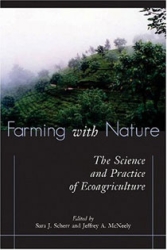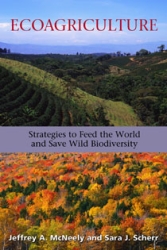
Sara J. Scherr
Sara J. Scherr is an agricultural and natural resource economist specializing in land and forest management policy in tropical developing countries. She is Director of Ecoagriculture Partners, an international partnership to promote increased productivity jointly with enhanced natural biodiversity and ecosystem services in agricultural landscapes. She also serves as Director of Ecosystem Services for Forest Trends, an NGO that promotes forest conservation through improved markets for forest products and ecosystem services. She is a member of the United Nations Millennium Project Task Force on Hunger, and a member of the Board of Directors of the World Agroforestry Centre.
Dr. Scherr's previous positions include: Adjunct Professor at the University of Maryland, College Park, USA; Co-Leader of the CGIAR Gender Program; Senior Research Fellow at the International Food Policy Research Institute in Washington, D.C.; and Principal Researcher at the World Agroforestry Centre, in Nairobi, Kenya. She was previously a Fulbright Scholar (1976), and a Rockefeller Social Science Fellow (1985-87).
Dr. Scherr received her B.A. in Economics at Wellesley College in Massachusetts, and her M.Sc. and Ph.D. in International Economics and Development at Cornell University in New York.


